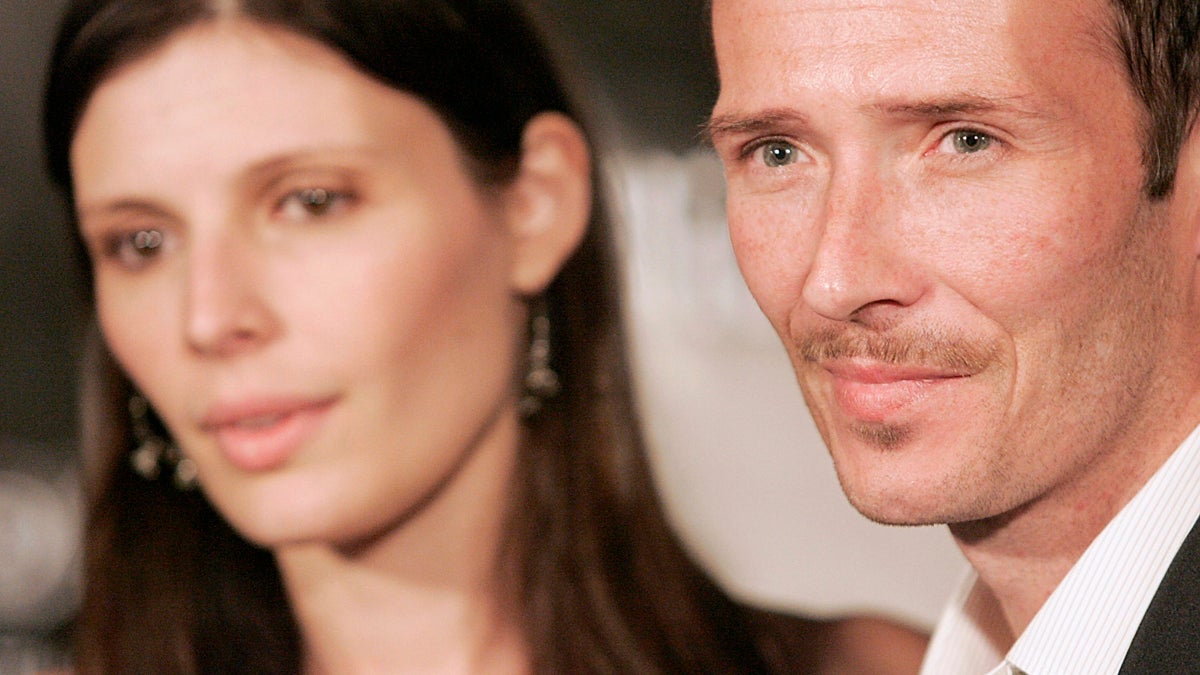Letter from ex-wife of Stone Temple Pilots singer resonates with those hurt by addiction
Listen
Singer Scott Weiland and his then wife, Mary Forsberg, pose on the red carpet during the William Rast Fashion Show at the Social Hollywood nightclub in Los Angeles, Calif. in 2006. (Dan Steinberg/AP Photo)
After Scott Weiland, lead singer of the Stone Temple Pilots passed away in early December, his ex-wife, Mary Forsberg Weiland, wrote an open letter called “Don’t Glorify this Tragedy.”
Her letter suggests that the family members of addicts don’t get enough support while their loved one is struggling with addiction. Mental health professionals in Philadelphia say that families need to be part of the equation.
In her letter, Mary Weiland touched on how difficult it had been to watch her husband rapidly descend into addiction and fail to show up for their two kids.
She wrote that even after she and the singer had split up, she spent hours trying to calm his paranoid fits, push him into the shower and fill him up with coffee, so that she could, “drop him into the audience at Noah’s talent show, or Lucy’s musical.”
Brooke Feldman is a young adult in recovery, and grew up watching her mother struggle with addiction.
“I remember thinking, maybe I was bad, and that’s why my mom didn’t want to be around,” she said.
Feldman said that if she had had more resources, such as education, she probably wouldn’t have blamed herself so much.
Adam Brooks, a senior scientist at The Treatment Research Institute in Philadelphia, said addiction — and treatment — put a lot of stress on families.
“When the addicted individual goes into treatment, not only are they at the end of their rope, but their family members are also at the end of their rope as well,” he said.
Mental health programs are starting to pay more attention to the entire family system, Brooks said, and he said he hopes the letter will help change the mainstream conversation about addiction and family.
“We need to start treating this more as a family system issue, and offering support, counseling, help, in the same place to those family members,” he said.
Both Feldman and Brooks said that letters like Mary Weiland’s could help change popular perceptions about what addiction looks like. Feldman hopes that one day, neighbors will bring casseroles to the family members of addicts, just like they would for any other sick person.
WHYY is your source for fact-based, in-depth journalism and information. As a nonprofit organization, we rely on financial support from readers like you. Please give today.




